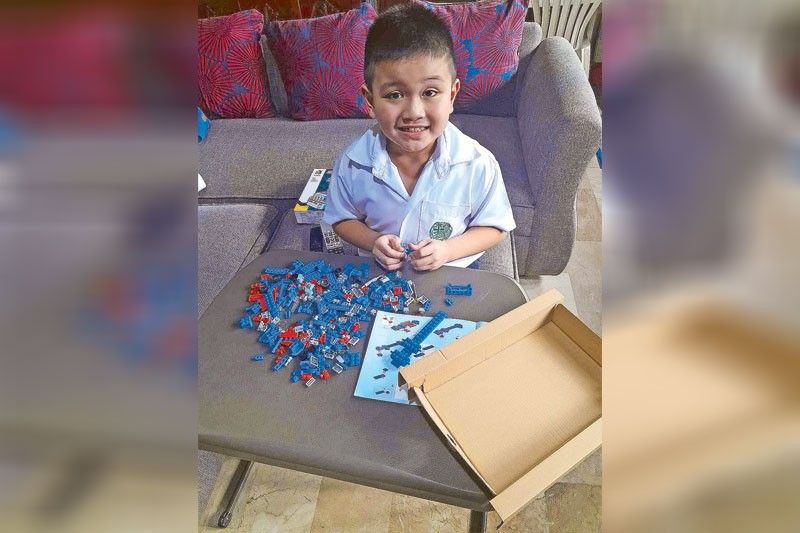Unraveling the mystery that is diabetes


Have you had your blood sugar checked lately? If you have a family history, have a sedentary lifestyle, suffer from obesity, feel tired and always thirsty — maybe it’s about time you do. Because the uncontrolled glucose in your bloodstream is far deadlier than COVID-19.
Diabetes doesn’t discriminate
Diabetes is a chronic disease. If left untreated, it could lead to blindness, kidney failure, loss of limbs and reduced life expectancy.
The problem with diabetes is that it doesn’t discriminate. It affects people of all races, ethnicities, socioeconomic backgrounds and ages. Even kids are at risk!
Doting parents Mai and Lele Dueñas noticed that their six-year-old son Reggie, who is my husband’s inaanak (godson), was losing weight — drastically. In a span of a month or two, the little boy lost four kilos!
They thought it was because of Reggie’s weekly taekwando class. But as the days went by, Mai noticed her son got tired so easily and was always thirsty.
“He was also asleep all the time which is quite unusual because Reggie is an active child,” Mai shared.
Alarmed, Mai asked Lele, who is also a diabetic, to check Reggie’s blood sugar. The result?

“It was 300 which is enough to put him in a coma,” the devastated mom said. The normal blood glucose for a child is about 70 to 140 milligrams per deciliter (mg/dL).
The following morning, Mai and Lele brought Reggie to her pedia, Dr. Marichu Mabulac of Philippine Children’s Medical Center. And their worst fear was confirmed: Reggie was diagnosed with diabetic ketoacidosis severe (DKA), a serious complication of diabetes that can be life threatening. DKA, which is common among people with type 1 diabetes, develops when your body doesn’t have enough insulin to allow blood sugar into your cells for use as energy.
“And if we didn’t bring him that day to the hospital, chances are we could have lost him,” Mai revealed.
Awareness is key
Over 400 million worldwide are diagnosed with diabetes. And this silent epidemic is on the march. In the Philippines, there are more than eight million people with diabetes. And among that number, only half know they have it. And only half of this 50 percent go to a physician to seek treatment.
“Pain is a protective indicator for people to seek consultation, but in diabetes, the symptoms are very vague,” notes Dr. Fatma Tiu, vice president of Diabetes Philippines. “They are not as alarming, unless you have a heart attack, for example. So we’re trying our best to not just prevent the complications, but uncover fast those undiagnosed illnesses so that we can prevent further organ damage.”
One of the risk factors, especially for type 1 diabetes, includes family history. It’s a genetic disease. Having a parent, a brother or sister with type 1 diabetes puts one at risk. In Reggie’s case, he probably got it from his dad.
And so, if you’re predisposed, it’s time to take charge of your health.
In celebration of Diabetes Awareness Month, Diabetes Philippines (DP) recently held its 40th annual convention to unravel the mystery that is diabetes.
“Diabetes is such a mysterious illness. We don’t really know why people get it,” said Dr. Marsha Tolentino, chairman and president of DP. “We know that there are risk factors like family history and obesity, among others. But we have patients saying, ‘My friend is heavier than me but he doesn’t have diabetes and can eat whatever he wants.’” Diabetes results from problems with the pancreas.
“When I started practice, there were just two defects. But now, experts have identified 11 different organs linked to diabetes like the gut and the kidneys,” shared Dr. Tiu.
Awareness is the first step in the fight against diabetes.

“That’s why we observe Diabetes Awareness Month,” explained Dr. Tolentino. “In our (Diabetes Philippines’) building, we have free clinics. We have 31 chapters nationwide helping us to spread awareness, the importance of early detection, and diabetes prevention.”
The treatment of the disease has also evolved.
“When you talk about diabetes injectibles, we only think about insulin. But every year medical experts discover something new. In the process of addressing one thing, they discover new things. Now, we don’t just treat diabetes, we also try to protect other organs that could be damaged due to complications — like the heart, lungs, and kidneys,” Dr. Tiu explained.
And since suffering from obesity also puts one at risk, there’s now a drug that aids in weight loss.
“You see patients lose 15 kilos of weight and improve their blood glucose level. We call it diabetes remission. Meaning, if that happens, your doctor can stop all of your medications. But, of course, you need to manage your weight,” Dr. Tolentino added.
In the Philippines, diabetes mortality has risen from top nine to top seven.
“In 2022, diabetes is the top 4 cause of death in the Philippines,” shared Dr. Tiu. “And it’s quite alarming.”
To defeat this disease, one crucial bit of action is taking your medication regularly and leading an active and healthy lifestyle.
“Our vision for Filipinos living with diabetes is to have a better quality of life — no complications, no mediations, no dialysis, no amputations,” said Dr. Tolentino. “They can see well, they can go about living normally. We call them Persons with Diabetes (PWD). It’s PWD but they don’t need to live with this ‘disability.’ They should be able to work normally.”
Novo Nordisk shares the vision of Diabetes Philippines of improved access to diabetes information, care and management.
“We believe that their initiatives help many Filipinos know their risk factors and, more importantly, know their response to this disease is instrumental in paving the way for a future where people living with diabetes have a better quality of life,” enthuses Wei Sun, vice president and general manager of Novo Nordisk. “Our own commitment is to continue to champion access to diabetes care in the country, and we will work hand-in-hand with organizations like them to ensure everyone benefits.”
Novo Nordisk actively takes part in creating innovations to help people fight diabetes. From its slow-acting insulin to addressing challenges to improve access and affordability of insulin to every Filipino living with diabetes, and further innovations over the years that help patients defeat the disease, the company supports the entire diabetes patient journey — from prevention to cure.
Beyond awareness of the disease, acknowledging and accepting one has it is the second big and bold step in defeating diabetes.
But how do you explain that to Reggie, who was diagnosed with juvenile diabetes at six?



















